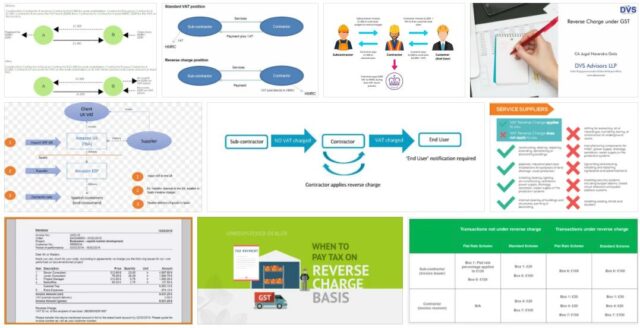Areas of application of the reverse charge process
The reverse charge procedure is particularly applicable to cross-border cases under EC law:
- Cross-border catalog services and cross-border intra-Community transport services, brokerage services and work services – under certain circumstances the reverse charge procedure may be required in all member states
- further cross-border transactions within the EC – introduction of reverse charge is permitted
- further cases within the EC when the reverse charge procedure can prevent tax evasion or tax evasion.
The reverse charge procedure can also be used within Germany . It is possible for factory deliveries and other services from companies located abroad if the processes can be controlled in Germany. In the case of deliveries of objects assigned as security by the security seller to the security seller, reverse charge can be applied if no insolvency proceedings are in progress.
According to Growtheology, the reverse charge procedure can be used for the delivery of land and for work deliveries and other services relating to the manufacture, repair and maintenance, removal or modification of structures. Planning and monitoring services are excluded from this option. Reverse charge is possible for gas and electricity supplies by a company located abroad.
The reverse charge procedure can only be used if the recipient of the service is an entrepreneur or a legal entity under public law. If the recipient of the service is not an entrepreneur and also not a legal person under public law, the service provider must pay the sales tax.
Application example Switzerland
Not only the EU states have sales tax regulations, also third countries like Switzerland. The regulation was renewed on January 1, 2018. Taxation also depends on the type of delivery / service and the recipient location principle. However, services are subject to purchase tax.
If a German company provides a service in Switzerland, then this service is subject to VAT for the Swiss company. According to the “Swiss acquisition tax”, the reverse charge procedure there, the Swiss company has to pay the due sales tax for the invoice of the German company to the responsible tax office in Switzerland.
In the past, foreign companies with a turnover of CHF 100,000 or more were taxable in Switzerland. VAT-free invoices could be issued, which was a major disadvantage for Swiss companies. Because of this regulation, foreign companies were preferred.
As of 2018, a company’s global sales have been irrelevant. As importers, German suppliers can invoice their invoices with a Swiss VAT. issue, take over the CH-EUSt and then claim it as input tax in Switzerland. A sample for the invoice to Switzerland is helpful .
Further information can be found in 641.20 Federal Act of June 12, 2009 on Value Added Tax (Value Added Tax Act, VATG).
Application example USA
In the USA it is similarly difficult and also not uniformly regulated. The legal system there sometimes provides separate regulations for each state. It is therefore possible that a German company is not subject to tax law at all or that no taxation is provided for the goods themselves.
If a service is provided there, the German company would theoretically have to pay the sales tax to the responsible tax office in the USA. To do this, however, the company must be registered in the USA. However, only an American tax advisor can check reliable information about the tax liability in individual cases.
Small business owner reverse charge
Small business owners with an annual turnover of less than 17,500 euros are not subject to sales tax. The reverse charge procedure does not apply to them.
Small business owners, however, have a disadvantage when ordering goods or services from abroad. Because then they still have to pay the 19% VAT for the foreign company to the German tax office, even though they cannot claim the amount as input tax.
It is also problematic in the opposite case. Because abroad there are not comparable small business regulations in all countries. A German small business owner who delivers or offers services abroad is confronted with a wide variety of tax regulations. For example, in addition to the local tax law, special reporting or export regulations also apply. It is strongly recommended that you seek appropriate advice from a tax advisor.
Effects of reverse charge
The obligation to pay sales tax is transferred to the recipient of the service in the reverse charge procedure. Carousel fraud in sales tax law can thus be prevented. As an entrepreneur, the recipient of the service owes the sales tax for his purchases according to the reverse charge procedure, but at the same time he can deduct the input tax to the same extent. Input tax amounts no longer have to be paid out to a considerable extent by the tax office, as they can be offset.
Conclusion
The reverse charge procedure is sometimes complicated, confusing and contains various pitfalls. A good tax advisor and a reputable accounting program help companies to do everything right. This can namely make legally compliant bookings and invoices that later simplify the tax.
